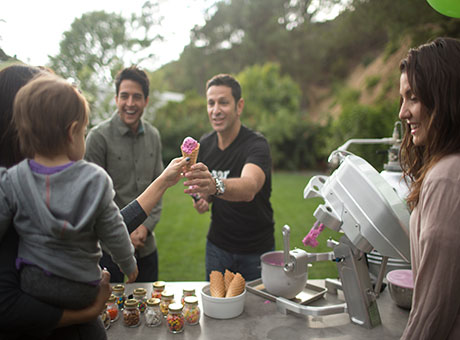A business licence is essentially a permit that allows a business to operate on a given premise in a particular municipality. The licence serves as proof to customers that the business is a legitimate establishment that complies with local laws and regulations and has permission to operate within the municipality. Since business licences are location-specific, each municipality provides different licensing procedures. Depending on where the business operates, the owner has to obtain a business licence from that particular municipality.

How to Get a Business Licence in Different Regions
How to Get a Business Licence in Ontario
Similar to any other provinces or territories in Canada, Ontario requires that businesses operating within the province obtain the proper business, trade, or profession permits or licences. The business owner must possess localized permits and/or licences, which means the applications are sent directly to the municipality unless otherwise specified.
If you’re at the beginning stages of setting up a small business in Canada, the easiest way to begin is by contacting the local City Hall where you plan to operate your business. By speaking to a City Hall representative about your company, you can get an idea of the types of permits you might need to begin operating. Different types of businesses and establishments require different licences and/or permits.
Case Example – Getting a Business Licence in Toronto
As a major business and financial hub, the City of Toronto is a prime location for starting a business. However, given its size and population, obtaining a business licence may not be as simple as in other smaller municipalities.
To apply for a business licence in Toronto, you must first register a business name with the province. Depending on whether the business is a sole proprietorship (i.e. Mom and Pop’s shop), a partnership, or a corporation, you’ll have to provide documents that reflect the business structure. Toronto requires all self-employed individuals to visit the Licence & Permit Issuing Office in person to apply for any required licences or permits. It’s important that you prepare to furnish a lengthy list of documents to this agency. The exact documents needed depend on the type of business you’re operating.
Documents typically required for all applications:
- An original Canada-wide criminal background check issued by a Canadian Police Service within 280 days prior to the application;
- A lease agreement or letter of cancellation from the previous owner with their licence if the business has a physical location; and
- Two pieces of government-issued identification.
As a new business owner, the second thing you must obtain is zoning approval. The Municipal Licensing & Standards Office initiates this process after receiving your application for zoning approval. Certain businesses, such as restaurants or entertainment establishments, require a Preliminary Project Review (PPR), which you can obtain from the building division.
The PPR may take up to eight weeks to process, and there is a fee for processing the PPR. If you are taking over an existing business with a valid business licence (or one that expired less than a year ago), you do not have to obtain zoning approval.
Finally, you must pay all required fees when you submit the application. Depending on the type of business, licensing fees could differ significantly. For a complete list of the fees and the specific application requirements for the business licence and permit, visit the City of Toronto website.
How to Get a Business Licence in Alberta
If you plan to operate your small business in Alberta, you must apply for a business license from Service Alberta. Service Alberta also typically requires municipal licensing or approvals for certain types of businesses, such as cemeteries, cooperatives, and employment agencies. Generally, business owners only have to concern themselves with the local licensing process.
In most municipalities, businesses obtain a license under a specific category, which allows the municipality to apply appropriate regulations to those specific businesses. Businesses deemed to have potentially negative impacts on the community (such as increased car traffic or noise levels) may need to comply with other regulations in addition to the local business licence.
Depending on how the municipal bylaw is written, the categories of businesses may differ. Typical categories include:
- Adult-Oriented Services
- Agriculture and Breeding
- Entertainment Venue
- Home-Based Business
- Hospitality
- Personal Services
- Professional Services
- Retail, Sales, and Rentals
- Trade and Industrial
- Transportation
If your business does not fit into any of these categories, you can apply for a general business license. Prior to applying for any type of business licence, you should contact the local Planning Service Centre or the local City Hall to ensure you are obtaining the correct licence for your business.
Case Example – Getting a Business License in Edmonton
Obtaining a business licence in the City of Edmonton requires two simultaneous steps. Before obtaining a business licence, a business owner first needs to apply for a development permit. A development planner reviews your application to determine if you’re allowed to operate under the proposed location’s zoning.
If the business is operating out of a commercial or industrial location, then both Business Licence and Development Permit applications are required. Remember to submit these documents at the same time. If you plan to operate the business out of your home, you’re also responsible for submitting a Home-Based Business Licence, once the Business Licence and Development Permit receive approval. If you plan to operate within Edmonton, but do not have a permanent base of operations in either a home or a commercial location, a Non-Resident Business Application is in order.
You must pay a processing fee when submitting these applications. The exact fee amount depends on the business category. For certain categories of businesses, the applications may need to be sent to the Edmonton Police Service, Alberta Health Services, Alberta Gaming and Liquor Commission, or Edmonton Fire Rescue for a recommendation before a licence is approved and issued.
Typically, business licence applications are processed within 1 to 3 weeks, however, depending on the recommendations required, the process may take a bit longer.
Once a business licence has been issued, business owners should note the expiry date. Business licences are up for renewal annually. If the licence is left to expire, the business owner has to obtain a new business licence by going through the entire process again, not to mention paying the full licensing fee as opposed to renewal fees.
Once you acquire the right licences and permits for your small Canadian business, you can begin using QuickBooks to manage your company’s finances. 4.3 million customers use QuickBooks. Join them today to help your business thrive for free.

